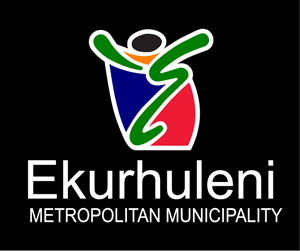The areas of concern include high vacancy rates for senior manager
positions, dysfunctional municipal public accounts committees (MPACs), high
water and electricity losses, and investigations and consequence management
into unauthorised, irregular, fruitless and wasteful expenditure.
“The general picture of functionality of municipalities in the province is
concerning and impacts directly on the ability of municipalities in
providing quality services to the people of the province, as advocated in
Section 152 of the Constitution. This concerning picture requires
collaborative effort in ensuring that we make municipalities viable
vehicles to deliver services to the people,” says Faith Muthambi, the
Chairperson of the committee.
Despite this, the committee appreciates the commitment highlighted by the
provincial government in offering support to municipalities, as per Section
154 of the Constitution. The committee encourages further support by both
national and provincial government to municipalities to ensure their
financial viability.
Regarding the high vacancy rate, while the committee acknowledges that of
the 11 municipalities only four municipal manager positions are vacant.
However, the high vacancy rate of supporting senior manager posts is a
concern.
In City of Johannesburg there is a 42% vacancy rate, Sedibeng has a 50%
vacancy rate, Lesedi and West Rand are at 33% vacancy rate, and Merafong is
standing at 42%. This rate can be attributed to the lack of strategic
direction and lack financial prudence in those municipalities. While the
committee acknowledges challenges in recruiting adequately skilled
personnel for those positions, it believes these challenges can be overcome.
The committee is concerned that of the 11 municipalities, five
municipalities’ MPACs have not approved the 2019/20 annual plan. This
undermines their critical oversight role and is reflected in the backlog in
investigating unauthorised, irregular, fruitless and wasteful (UIFW)
expenditure.
The committee has called on the councils of Ekurhuleni, City of Tshwane,
West Rand and Midvaal to conclude and approve their MPAC annual plans.
Furthermore, the committee is concerned that only 55% of municipalities are
compliant in approving the oversight report, as per Section 129 of the
Municipal Finance Management Act (MFMA). This undermines good governance
and must be rectified immediately.
High water and electricity losses are another area of concern. These losses
put pressure on the cash flow balances and contribute to poor service
delivery. It is unsustainable to have water losses of R1 386 000 000 in
Johannesburg, R1 051 432 369 in Tshwane and R1 002 005 635 in Ekurhuleni.
The committee has urged municipalities to deal with customers who access
water services illegally, address inaccurate billing to increase payment
and fix ageing infrastructure.
The committee has also called on municipalities to urgently address the
high number of councillors in arrears. Of the eight municipalities
reporting councillors in arrears amounting to R1 720 858 in total, only
Merafong has no councillors in arrears. This fosters a general culture of
non-payment, as residents follow the example set by councillors. Public
representatives have a moral and societal responsibility to pay for
services.
Government debt to municipalities is also a concern and requires urgent
attention from both provincial and national government if the culture of
non-payment is to be overcome.
Regarding UIFW expenditure, the committee is concerned that in Gauteng 77%
of unauthorised expenditure for the 2018/19 financial year and prior years
is still to be addressed, as per Section 32 of the MFMA. This equates to an
amount of R7 276 714 710, which supports the perception of lack of
consequence management. It is unacceptable that in the City of
Johannesburg, UIFW expenditure increased from R1,2 billion in the 2014/15
financial year to R3,07 billion in the 2018/19 financial year.
In West Rand, the aggregated UIFW expenditure incurred for the 2018/19
financial year is R149,7 million. R92,09 million (61%) of the amount has
not been investigated.
In Mogale City, unauthorised expenditure amounts to R166,3 million in the
2019/20 financial year. The committee calls for the urgent completion of
the investigation and implementation of consequence management against
those in the wrong and recovery of finances where possible.
The committee continues to call for collaboration between national,
provincial and local government together with the South African Local
Government Association to find workable and lasting solutions to challenges
within the local government sphere.
The committee will engage the City of Tshwane to assess service delivery to
the people of the area.

